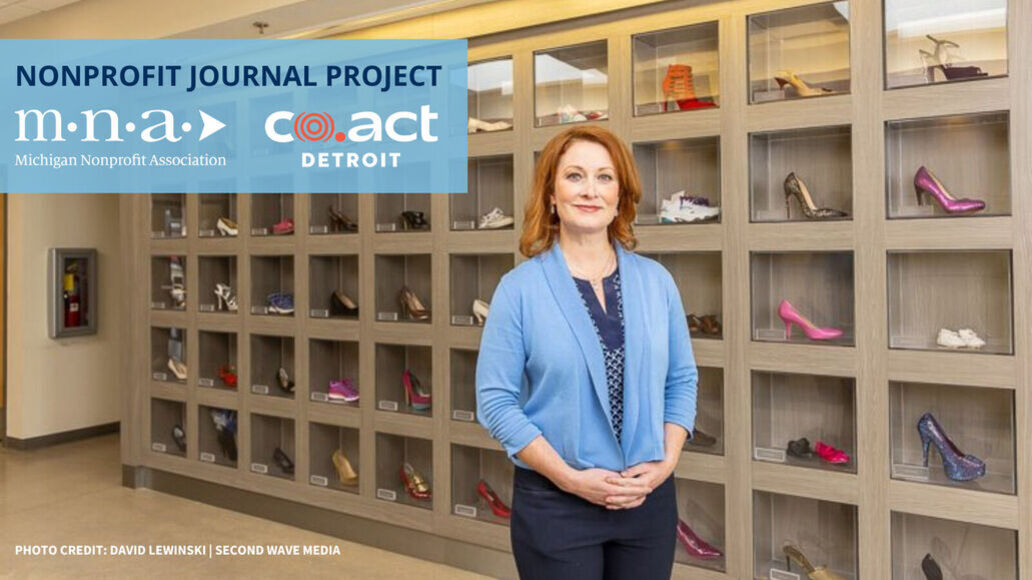A financial triple whammy for nonprofits
- Posted On
- Category

“There is not a sole person who has not been impacted by inflation,” said Christine Kinal, president and chief executive officer of Haven of Oakland County, which provides a shelter and programs for victims of domestic violence. “It’s affecting nonprofits in a large way.”
Household budgets are being stressed by increased costs for food, rent, gasoline and other necessities, leaving many people with less money available for charitable giving, she said.
At the same time, inflation has boosted nonprofits’ costs for providing services, capital improvements and payrolls, squeezing their budgets.
A financial triple whammy for nonprofitsFeature: Nonprofit Journal Project
RICK HAGLUND | WEDNESDAY, MARCH 8, 2023
Nonprofits are dealing with a financial triple whammy: the ending of federal financial support from the COVID-19 pandemic, a struggle to find and retain talent, and stubbornly high inflation that’s hitting the pocketbooks of donors.
As the pandemic began to ease in 2021 with the emergence of new COVID vaccines, inflation took off at the highest rate in 40 years. While it’s begun to ease as the Federal Reserve cranks up interest rates, nonprofit leaders say too-high inflation is still hurting donations they depend on to provide critical services.
“There is not a sole person who has not been impacted by inflation,” said Christine Kinal, president and chief executive officer of Haven of Oakland County, which provides a shelter and programs for victims of domestic violence. “It’s affecting nonprofits in a large way.”
Household budgets are being stressed by increased costs for food, rent, gasoline and other necessities, leaving many people with less money available for charitable giving, she said.
At the same time, inflation has boosted nonprofits’ costs for providing services, capital improvements and payrolls, squeezing their budgets.
“It’s becoming a minor version of the perfect storm,” said Jim Vella, CEO of the Vella Group, a Detroit-based nonprofit consulting firm. “I think the last three years have been pretty tumultuous.”
The storm has hit nonprofits in various ways. At Haven, about 45% of the nonprofit’s roughly $5 million in annual revenue comes from state and federal grants. Among those is the federal Crime Victims Fund, which distributes fines from federal criminal trials to the states. The federal money is supplemented by state awards.
Michigan and other states distribute their shares of the fund to organizations like Haven that serve victims of domestic abuse, rape, child abuse and other crimes. Michigan’s slice of that funding fell from $100.3 million in 2018 to $30.8 million in 2021, according to the latest data from the federal Office of Victims of Crime.
The steep drop in funding was attributed to “prosecutorial strategies that have changed over the last decade” and reduced court fines, according to the National Network to End Domestic Violence.
Kinal said revenue from the fund also has fallen in recent years because most criminal trials were delayed for extended periods during the COVID pandemic. She’s hoping the funding will return to a more normal level this year as the court system clears case backlogs.
“We’re kind of driving blind,” she said. “We don’t know what the funding will be this year.”
Gleaners Community Food Bank, a large Detroit-based nonprofit, depends heavily on donated food from the federal government that it distributes in the five-county region of Wayne, Oakland, Macomb, Livingston and Monroe counties.
But it is battling to meet the needs of food-insecure people because of a sharp decline in donated food from the U.S. Department of Agriculture, said Patrick Schulte, Gleaner’s director of development.
The USDA purchases surplus food from farmers and distributes it to food banks, schools, Indian reservations and other groups. Gleaners is experiencing a reduction in its allocation primarily because of supply chain problems and the war in Ukraine, Schulte said.
Gleaners also depends on donated surplus food from grocery chains, farms and other suppliers. It distributes about 40 million pounds of food a year through nearly 600 partner organizations.
“Our biggest challenge is making sure we have enough food to the serve the community,” Schulte said.
The number of people coming to Gleaners seeking food support began to decline as the COVID pandemic eased, but there’s been a recent uptick in need because of rising grocery prices. The price of food for home preparation rose 11.2% in the past 12 months ending in January, according to the Bureau of Labor Statistics.
While overall job and wage growth has been robust, there is a significant percentage of people who struggle to make ends meet. Nearly 32% of Detroit’s population, for instance, lives below the federal poverty level, according to census data. An unexpected expense, such as replacing a broken hot water heater, can leave little money left for food.
“Some slight hiccup in a family’s monthly budget can throw them out of whack and take months and months to recover,” Schulte said.
Gleaners’ rolling inventory of food, normally about four weeks, has recently been cut to two weeks because of increased demand for assistance. That, and the decline of USDA donated food, has prompted the food bank to budget purchasing 2 million pounds of food this year, Schulte said.
Nonprofits also are being stung by the end of COVID-related federal support, including increased benefits in the Supplemental Nutrition Assistance Program. About 1.3 million Michigan residents were receiving at least an additional $95 a month in SNAP benefits during the pandemic. That additional support ended in February.

